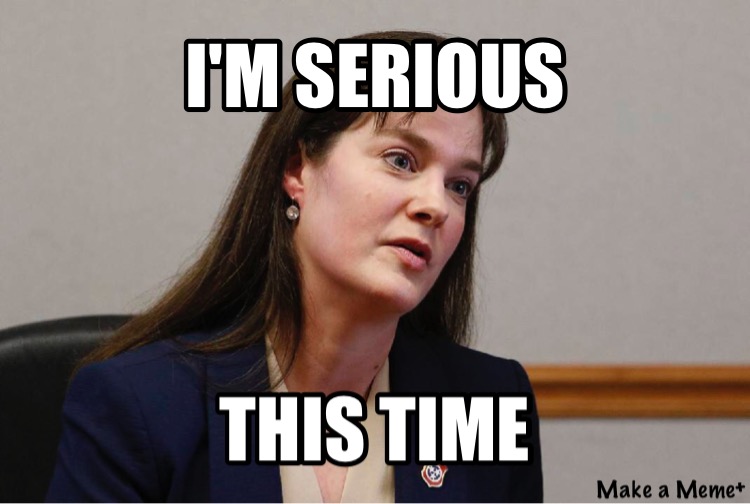Halloween is a great time to look back on 2018 and reflect on all the nasty tricks played on Tennessee schools by Commissioner of Education Candice McQueen.
Here we go!
If you find out, as Mike did, that including the scores may have an undesirable impact, you have the option of nullifying your entire LOE — in fact, even if the score is good, if TNReady makes up any part of your overall LOE, you have the nullification option. Here’s more from Mike on that:
What immediately struck me is that all three of these options include my students’ growth on a flawed test that, by law, isn’t supposed to hurt me if last year’s test results are included, which they are. My overall L.O.E. score is a 4 out of 5, which still isn’t too bad, but the previous three years it has been a 5 out of 5. This means that the TNReady scores are, in fact, hurting my L.O.E. So what do I do now?
As the president of the Coffee County Education Association, I received the following message from TEA today that I quickly forwarded to my members: “To comply with the [hold harmless] legislation, teachers and principals who have 2017-18 TNReady data included in their LOE may choose to nullify their entire evaluation score (LOE) for the 2017-18 school year at their discretion. An educator’s decision to nullify the LOE can be made independently or in consultation with his/her evaluator during the evaluation summative conference. Nullification is completed by the educator in the TNCompass platform. The deadline for an educator to nullify his/her LOE is midnight CT on Nov. 30.”
To summarize, Tennessee is claiming success off of one particularly positive year on NAEP and on TNReady scores that are consistently unreliable. Then, Tennessee’s Education Commissioner is suggesting the “key driver” to all this success is a highly flawed evaluation system a significant portion of which is based on junk science.
Also, note that student projections are being updated based on the 2017-18 scores.
What?
The 2017-18 test was plagued by hackers, dump trucks, and mixed up tests. Still, the TDOE plans to use that data to update student projections. These projections will then be used to assign value-added scores going forward.
That’s one hell of an adverse impact. Or, it could be. It really depends on how the 2017-18 scores impact the projected performance of given students.
Anyway, after this year’s blame the teachers portfolio event, the state finally agreed to review portfolios and re-score them. In fact, the state offered $500 each to reviewers who would meet at centralized locations and on a single day (September 8th) to assess the portfolios in question. This would allow for immediate feedback and assistance should problems arise.
The good news: No assistance was necessary because problems didn’t arise during the scoring.
The bad news: That’s because there was no scoring as the state’s vendor, Educopia, could not provide access to the portfolios in order for them to be graded.
Tennessee is near the bottom. The data shows we’re not improving. At least not faster than other states. I’ve written about how we’re not the fastest-improving in teacher pay, in spite of Bill Haslam’s promise to make it so:
Average teacher salaries in the United States improved by about 4% from the Haslam Promise until this year. Average teacher salaries in Tennessee improved by just under 2% over the same time period. So, since Bill Haslam promised teachers we’d be the fastest improving in teacher pay, we’ve actually been improving at a rate that’s half the national average. No, we’re not the slowest improving state in teacher pay, but we’re also not even improving at the average rate.
Last week, the School Superintendents in Memphis and Nashville wrote a letter to Commissioner of Education Candice McQueen calling for a pause in TNReady. The letter indicated the leaders had “no confidence” in TNReady. Following the letter, the Knox County School Board voted 8-1 to send a letter to Governor Haslam stating they had “no confidence” in the Department of Education. Later that week, the Director of Schools in Maury County said he agreed with the idea of pausing TNReady and suggested moving to the ACT suite of assessments.
Today, Commissioner McQueen issued a response. According to Chalkbeat, her response indicates that pausing TNReady would be “illegal and inconsistent with our values as a state.”
Dear Teachers,
It’s your fault.
It always is.
That’s essentially the sentiment expressed by the Tennessee Department of Education led by Candice McQueen after the latest round of problems, this time with portfolio evaluation of Pre-K/Kindergarten teachers.
If this year had been the first time our state had faced testing challenges, one might understand (and forgive) the excuse-making. However, this is now the fifth consecutive year of some sort of problem and the fourth year testing administration has been, to say the least, a challenge.
One may recall the saga of Measurement, Inc. The company that hired test graders from Craigslist and was ultimately fired in 2016 after that year’s TNReady test failed.
The bottom line: If TNEdu tells you something about testing, you should question it. The track record shows that to our state’s Department of Education, truth is a relative concept.
Happy Halloween!
For more on education politics and policy in Tennessee, follow @TNEdReport





